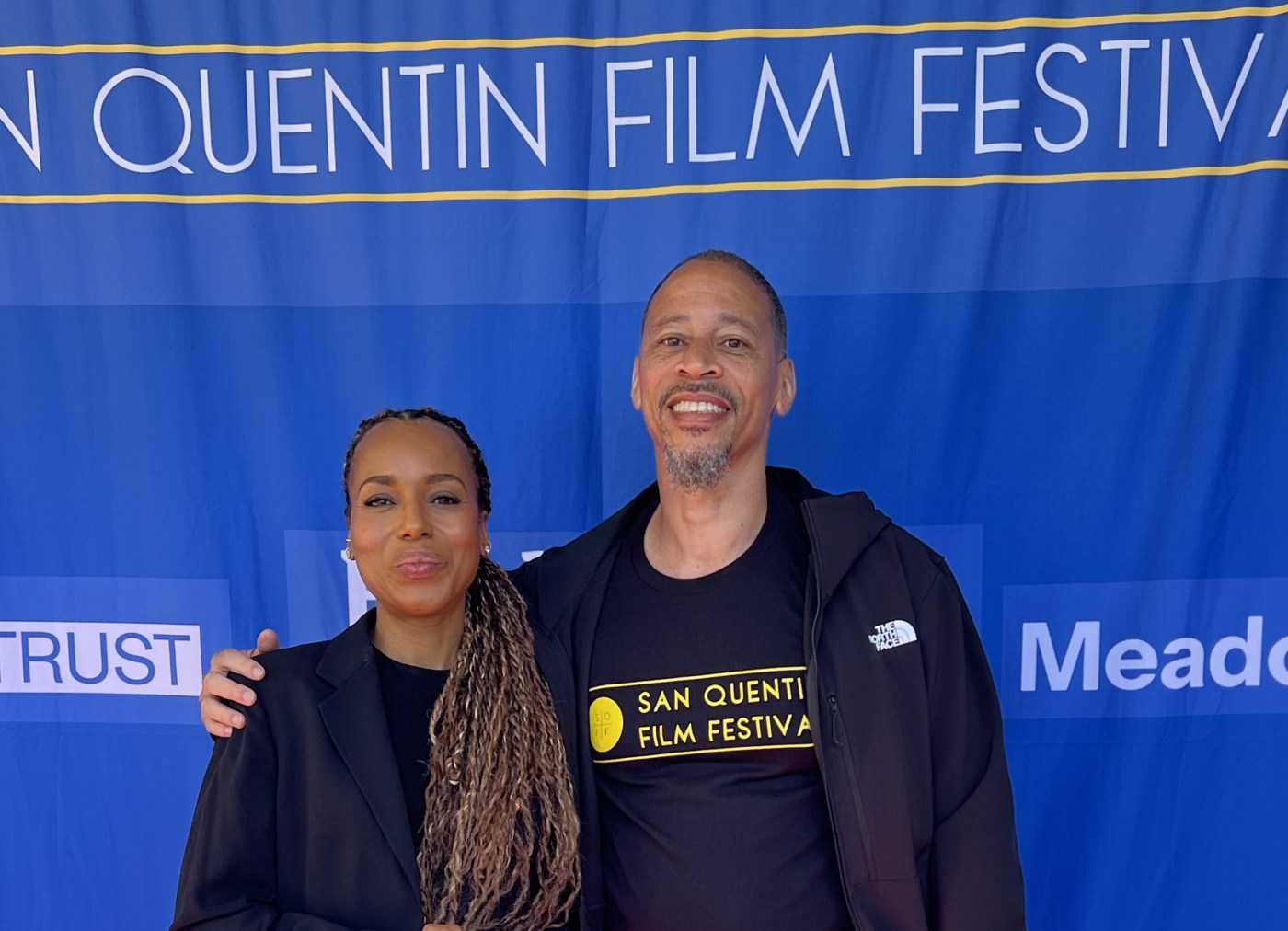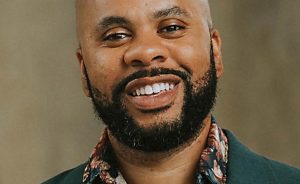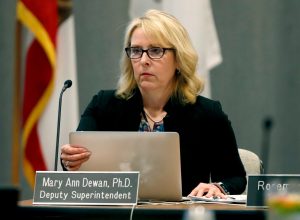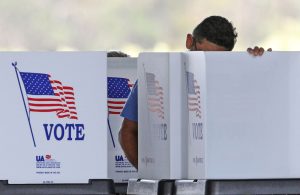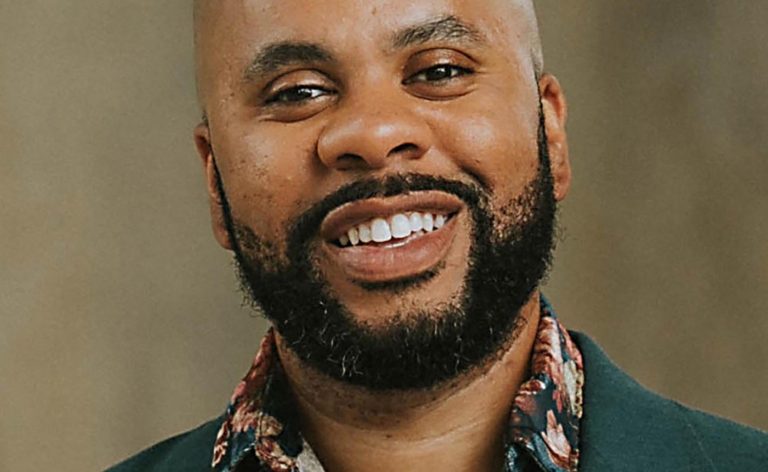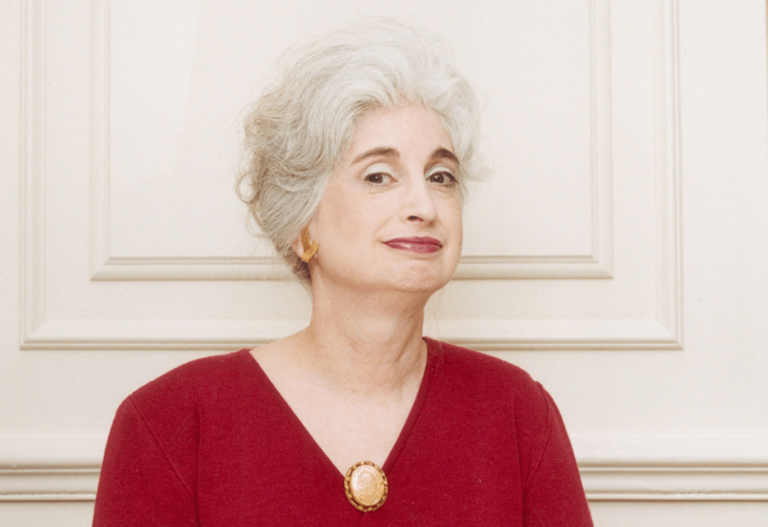SAN QUENTIN – History was made Thursday at San Quentin Rehabilitation Center where what’s believed to be the first major film festival ever held within a prison’s got off to a joyous start.
The two-day San Quentin Film Festival has been a labor of love for founders and festival directors Cori Thomas and Rahsaan “New York” Thomas (no relation), who received a blessing from San Quentin officials to put on this first-time event.
The fest’s goals are to showcase the creative achievements of current and formerly incarcerated filmmakers and to present a different view of incarcerated men than what often gets served up in the media and Hollywood.
“We’re trying to change that narrative,” said Cori Thomas, who first volunteered in the Media Center at San Quentin since 2016. In her opening remarks, the author recalled how she prejudged the men inside prior to getting her eyes opened during her first visit there. She realize how problematic it can be to prejudge a group of people.
Rahsaan Thomas has been a strong advocate for uplifting the voices of the incarcerated and was a Pulitzer Prize finalist for his “Ear Hustle” podcast, about life inside a prison, and is a filmmaker himself. He was also formerly incarcerated in San Quentin. He hopes other rehabilitation centers will follow in San Quentin’s footsteps, adding that “feeling like you’re a part of society is the most healing part.”
Guests on the outside arrived early Thursday morning (the film “Sing Sing” was set to screen that night) and had to forgo blue jeans (because the incarcerated men wear them) and ditch or relinquish cell phones.
Thursday’s opening brought in some A-List celebrities and filmmakers: “American Fiction” Oscar winner Cord Jefferson (a judge and presenter); director/producer and creative dynamo W. Kamau Bell from Oakland; “Sing Sing” director and co-writer Greg Kwedar (judge); “Pier Kids” and “The Inspection” filmmaker Elegance Bratton (a judge), Oakland filmmaker and producer Abby Ginzberg; and more. Other celebrity guests and media members from across the country were also on the guest list.
To break down barriers between visitors and people on the inside, everyone got a chance to mingle beforehand and then sat down together in an auditorium to watch films as well as a few skits and listen to musical performances. There were presentations from filmmakers and awards were handed out.
The program was to continue Friday with an appearance from actor/producer Kerry Washington, who executive-produced Netflix’s exceptional “Daughters,” a documentary about a dance held for daughters and their incarcerated fathers (it was slated to be screened Friday night). Friday’s schedule also included screenings of “Songs From the Hole,” what’s described as a visual album produced by formerly incarcerated music/film producer Richie Reseda; the world premiere of the 19-minute documentary “Four Letters,” Charles Anderson’s journey from incarcerated man to tech giant; and the searing documentary “The Strike,” from Oakland director Lucas Guilkey and JoeBill Muñoz, formerly of Oakland.
“The Strike” was selected as best documentary by a jury of men at San Quentin, and covers the Pelican Bay hunger strike, which fanned out to other facilities, in reaction to inhumane conditions of solitary confinement. In a moving acceptance speech, Muñoz detailed how after being in a juvenile detention center he found hope by turning to filmmaking. (“The Strike” will be screening Oct. 23 at the Grand Lake Theater in Oakland; and will broadcast as part of PBS’s Independent Lens series in the spring.)
One of the highlights Thursday came when W. Kamau Bell moderated a panel discussion featuring filmmakers nominated for best documentary and narrative shorts.
In one of the most moving remarks, director Louis Sale described how his short documentary “Healing Thru Hula,” which looks at how a group of incarcerated men are reconnecting with their Asian/Pacific Islander culture, is intended as an apology to members of the API community for his past actions.
“I left it (the culture) when I was 14,” he said. “And of all places I rediscover it here in prison.”
For B. “Raheem” Ballard, the excitement of getting his 10-minute documentary “Dying Alone” shown at San Quentin was extra special — even if he had to miss the packed screening. The illuminating short film about three incarcerated men with serious health conditions who are holding out hope for “compassionate releases,” was projected on the wall of a San Quentin auditorium.
Ballard wasn’t able to make it since he was facing the parole board that morning.
Later in the day, Ballard emerged a double winner, as Rahsaan Thomas announced that his parole had been approved — the audience erupted into a round of applause and a standing ovation that would put a Cannes Film Festival crowd to shame — and “Dying Alone” captured a documentary award.
“It was hard not to give up,” said Ballard, who was serving his 22nd year on a sentence that was originally schedule to last to 2039. “My hope is that a lot oaf people from the outside realize there is a lot of talent on the inside.”
To check out some of the films, you can watch them virtually at https://www.sanquentinfilmfestival.com/virtual-festival
